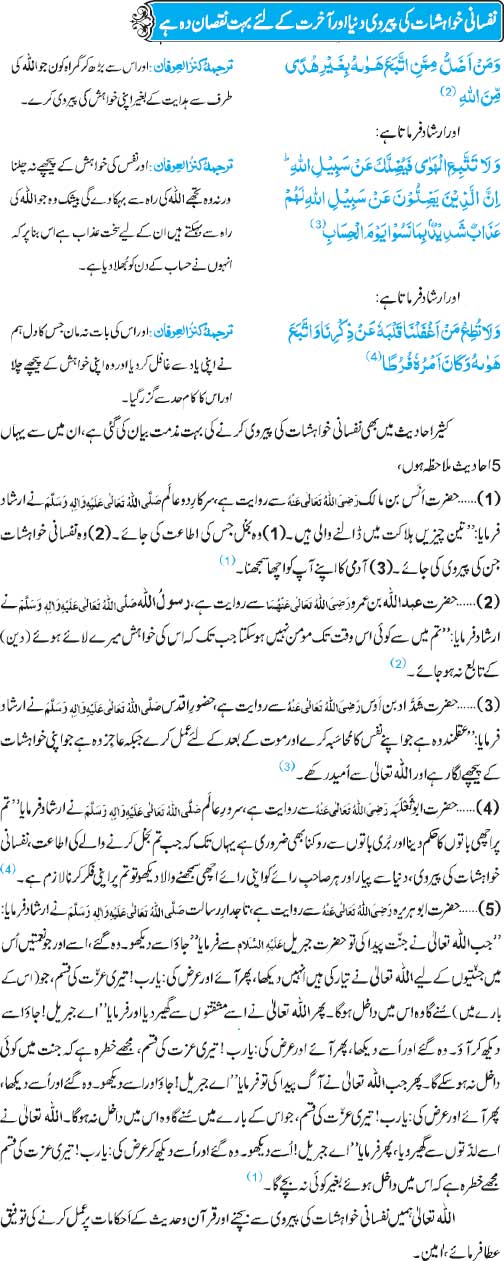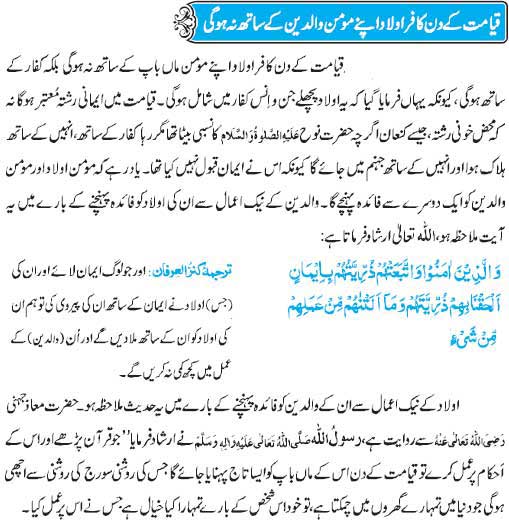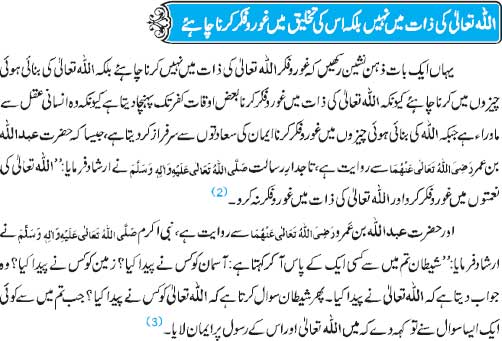
A Virtue Called Patience
Will being impatient and fretting about things we cannot change, change anything?
To be patient and let things run their course as they should, is one of the secrets of happiness and contentment.
My father seemed to sense my impatience. “The big ones didn’t get that way by snapping the first thing to hit the water,” he said quietly. “You’ll soon find that anything big and worthwhile usually takes a lot of time.” Patience is one of the most important qualities demanded of those who claim to love Allah, as the degree of patience determines those who are sincere in their claim and those who are not. The degree of patience needed to endure hardship and difficulties in order to please the Beloved proves the sincerity of one’s love. Many claim to love Allah, but when Allah tests them with hardship, they forget the true essence of love. No one can adhere to the love of Allah except those who are patient and persevering (as-sabintri). If it were not for the test of hardship and sincerity, there would be no proof of the sincerity of a person’s love for Allah. The one whose love of Allah is greater has a greater degree of patience. Therefore, Allah has attributed the quality of patience to His close friends (awliya) and most beloved. He said about His beloved slave Ayyub (AS): “… Truly We found him full of patience and constancy. How excellent Our service is! Ever did he turn (to Us)!” (Sad 38: 44) Allah instructed the most beloved to Him of everything He created to have patience in accepting His decree and told him that patience comes only with the help of Allah. He praised those who have patience and promised them the best of rewards: the rewards of others are defined and limited, but the reward of as-sabirun is without measure. Patience is vital at all levels of Islam, Iman, and Ihsan, as well as being a major element in iman (faith) and tawakkul (putting one’s trust in Allah). Patience for the sake of Allah, by the help of Allah, and in accepting the decree of Allah.
1. Patience for the sake of Allah, hoping for His rewards and fearing His punishment.
2. Patience by the help of Allah, as man realizes that he has no patience himself, and has no power to acquire patience. Rather, he knows: “there is no power and no strength except by (the help of) Allah.”
3. Patience in accepting the decree of Allah, as man realizes that Allah is the only one Who is controlling the affairs of the universe, so he will patiently accept the ruling and decree of Allah, regardless of what it may mean for him in the way of ease or hardship.
Patience is half of Iman, Iman is in two halves: half is patience (sabr) and half is gratitude (shukr). Therefore Allah has mentioned patience and gratitude alongside one another: “… Verily in this are Signs for all who constantly persevere and give thanks” (Ibrahim 14: 5; Luqman 31:31; Saba 34: 19; ash-Shura 42: 33) The reasons why one half of iman is patience and the other half is gratitude are as follows: Iman is a term which covers words, deeds, and intentions, all of which are based on one of two things, action or abstinence. Action refers to performing a deed in accordance with the instructions of Allah, which is the reality of gratitude. Abstinence, as in refraining from the wrong action, requires patience. The whole of religion is embodied in these two things: carrying out that which Allah has commanded, and refraining from that which Allah has prohibited. Iman is based on two pillars, yaqin (conviction) and patience, which are referred to in the following ayah: “And We appointed, from among them, leaders, giving guidance under Our command, so long as they persevered with patience and continued to have faith in Our Signs” (As-Sajdah 32: 24) It is through faith that we know the reality of Allah’s commands and prohibitions, of reward and punishment, and it is through patience that we carry out His instructions and abstain from that which He has prohibited. Man is constantly being pulled in two opposing directions: should he respond to the lure of this world of desires and pleasures, or should he answer the call of Allah and the hereafter, with the eternal Paradise that Allah has prepared for His friend (Wali) Going against the call of whims and desires is patience, and responding to the call of Allah and the hereafter is gratitude.
Emulating the attributes of Allah
If a person loves an attribute of Allah, then this will help him to reach Him. Allah is as-Sabur, patient, and there is none that is more patient and forbearing than Him. It was reported that Allah revealed to Dawood (AS), “Have my attributes, as one of My attributes is that I am Sabur (patient).” Allah loves His attributes and characteristics, and He loves to see the effects of His attributes on His slaves. As He is beautiful, so He loves beauty; as He is all-forgiving, He loves forgiveness; as He is generous, He loves generosity; as He is all-knowing, he loves people of knowledge; as He is strong and powerful, so a strong believer is more beloved to Him than a weaker one; as He is Sabur (patient), so he loves those who have patience; as He is shakur (grateful), so He loves those who give thanks. As He loves those who have His characteristics, so He is with them, and this is a special and unique type of companionship.
Sickness is evil but if we remain patient it is something good because our sins are being wiped out. Abu Huraira related that the Prophet (PBUH) said, “for any trouble, illness, worry, grief hurt, or sorrow which afflicts a Muslim, even the prick of a thorn, Allah removes in its stead some of his (minor) sins”(Bukhari, Muslim) So if this person remains patient then its something good but if he is not patient then it becomes evil.
Qayamat Kay Din Kafir Aulad Apnay Momin Waldain Kay Sath Na Hogi

Our Lifetime Is About To Be Over Soon
GOD (Allah) does not require an accident or a reason to call us back. HE can call us any time. Many researchers have shown that any person can die anywhere without any good reason. For instance, a special nerve in our brain can burst anytime for no reason. All those who have ever been a victim of earthquakes never imagined that an earthquake was about to strike them. But most of us don’t think about it and are of the opinion that we still have enough life and will follow religion in older age. Every one of us is standing in the mouth of death ready to become her prey at any time. If this moment is our end, can we be sure that we followed the true religion in its true spirit and that our deeds are good enough to earn us Paradise (Jannah)?
This life is a test for everyone and we know very well that everyone can not get 100% justice in this life. When it is dead sure that there will be a day of judgment and there is life after death, one should check his/her faith and consult the sacred scripture of religions to find out true religion.
If Allah calls us now and asks us about our life, and what we did with it, we will surely be ashamed in front of Him. But consider another possibility. Suppose we ask Him to give us another chance (which is not possible) and He gives it to us, imagine what will we do!
Our second chance starts Now?
May God show us the right path… Aameen
Allah Taala Ki Zaat Mein Nahi Balkay Iss Ki Takhleeq Mein Ghor O Fikr

Allah Rewards Without Price
[Quran – 47:36] “The present, worldly life is nothing but a play and a pastime… If you truly believe and keep from disobedience to Him in reverence for Him and piety, He will grant you your rewards, and will not ask of you your wealth.”
[EXPLAINED by Muhammad Asad] “Although the life of this world is “but a play and a passing delight”, God does not want to deprive the believers of its rightful enjoyment: and so He expects them to sacrifice only a small part of their possessions in His cause. This passage evidently foreshadows the imposition of the obligatory annual tax called zakah (“the purifying dues”), amounting to about 2.5 percent of a Muslims’s income and property, as pointed out by most of the classical commentators in connection with the above verse (hence my interpolation). The proceeds of this tax are to be utilized in what the Qur’an describes as “the cause [lit., “way”] of God”, i.e., for the defense and propagation of the Faith and the welfare of the community; and its spiritual purpose is the “purification” of a Muslim’s possessions from the blemish of greed and selfishness. (It is to be noted that the payment of zakah was made obligatory at the very beginning of the Medina period, that is, at approximately the same time as the revelation of the present surah.)”
Dosron kay Liye Dua

The Conditions Of Prayer (Sharaaet)
The 6 conditions of Prayer are as follows:
Purity – The body and the clothes of the one offering Prayer must be pure. Further, the place of worship must be clean. One must either have a bath (if the bath is compulsory) or else just the ablution (which is a must).
Concealing the body – This is also called Satr-e-Aurat. That is to conceal/cover the necessary parts of the body. For men, this consists of the body between the navel up to and including the knees. For women, this consists of the entire body, except the face, hands, and soles of the feet. Women must hide their faces from strangers whilst not in Prayers. Wearing clothes that are so thin that body color is exposed will make the Prayer void. Similar is the case of the headscarf if the shine of the hair is revealed. In fact, wearing such clothes is prohibited even outside Prayer.
Direction towards the “Qiblah” (Kaaba) – this is called “Istiqbaal-e-Qiblah”. The face and the chest must be directed towards the “Qiblah”, whilst offering Prayer.
The Time of Prayer – proper timing is the fourth condition of Prayer. The time for Dawn Prayer starts from actual dawn and ends at the beginning of sunrise. It should be offered within this period. The time for Afternoon Prayer starts from the time the sun crosses its zenith until the shadow of any object becomes double its actual length. (The actual length means the length of a shadow when the sun is at the meridian – i.e. half distance between sunrise and zenith).
The time for Evening (Asr) Prayer starts from the time the Afternoon (Zohr) Prayer ends and finishes at sunset. The period of 20 minutes before sunset is undesirable (Makrooh), therefore one should complete the Evening Prayer before this. If the Prayer could not be offered before this due to some reason, then one should offer it during this period before sunset. The time for the Sunset (Maghrib) Prayer starts immediately after the setting of the sun and ends up on the disappearance of twilight. The period for Night (Isha) Prayer begins upon the disappearance of the twilight and lasts up to dawn. However, delaying it after midnight (half time between sunset and sunrise) is Disliked (Makrooh).
Intention (Niyah) – This is the fifth condition of Prayer. Shariah classifies “Niyah” as the firm intention within the heart. The lowest rank of such resolve is that when a person is asked about which Prayer he is offering, he should be able to answer the question promptly. If he answers after some consideration, the Prayer is void.
It is better (Mustahab) to declare the “Niyah” in a soft voice. There is no condition as to the language in which this should be said. It is better to have the intention in mind while proclaiming the “Takbeer Oola” (the first declaration of Allah’s greatness, at beginning of Prayer).
“Takbeer Tahreemah” (declaration of Allah’s greatness, which prohibits other actions except for the Prayer.) – This is the sixth condition of Prayer. This means to recite aloud “Allahu Akbar” (Allah is the Greatest) to begin the Prayer.
Prayer becomes void if the word “Allah” is pronounced as “Aaallah” or if the word “Akbar” is pronounced as “Akbaar”. Rather the person will become an infidel if the words are purposely pronounced this way whilst knowing their derogatory meanings.
Times when prayer is prohibited
- The following are the times when Prayer is regarded as Disliked (Makrooh).
- From sunrise until 20 minutes have elapsed.
- From 20 minutes before sunset, until sunset.
- Mid-morning (meridian noon) until the sun reaches the zenith.
Within these periods Prayer of any type or the Prostration (for Quran recitation, etc.) is not permitted. Except within these periods, all the lapsed Prayers and the Voluntary Prayers can be offered at any time. However, Voluntary Prayers are not permitted after dawn until sunrise and after one has offered the Evening Prayer until sunset. Both Sunnah and Nafil Prayers are prohibited during the time of the Sermon.
Gunahon Bhari Zindagi

The Rakaats in Prayer
(A single round of bodily actions within a Prayer, is called a “Rakaat”. )
Dawn (Fajr) Prayer: Total of 4 “Rakaats” – in the following order: 2 Emphasised Sunnah (Muakkadah), 2 Obligatory (Farz).
Afternoon (Zohr) Prayer: Total of 12 “Rakaats” – in the following order: 4 Emphasised Sunnah (Muakkadah), 4 Obligatory (Farz), 2 Emphasised Sunnah (Muakkadah), 2 Voluntary (Nafil).
Evening (Asr) Prayer: Total of 8 “Rakaats” – in the following order: 4 Non-Emphasised Sunnah (Ghair Muakkadah), 4 Obligatory (Farz).
Sunset (Maghrib) Prayer: Total of 7 “Rakaats” – in the following order: 3 Obligatory (Farz), 2 Emphasised Sunnah (Muakkadah), 2 Voluntary (Nafil).
Night (Isha) Prayer: Total of 17 “Rakaats” – in the following order: 4 Non-Emphasised Sunnah (Ghair Muakkadah), 4 Obligatory (Farz), 2 Emphasised Sunnah (Muakkadah), 2 Voluntary (Nafil), 3 Essential (Wajib Witr), 2 Voluntary (Nafil).
Some Sunnah Prayers are Emphasised (Muakkadah) – which Shariah has stressed upon. Leaving it without proper excuse makes one liable for censure, and abandoning it makes one a sinner, disqualified from giving witness and deserving of fire. (These should not be purposely abandoned even during travel.) Some Imaams have said that one who abandons these will be deemed astray, and a sinner although his sin is less than that of leaving an Essential (Wajib). Leaving the Sunnah habitually is close to forbidden (Haraam) and it is feared that (We seek Allah’s refuge) such a person may remain deprived of the Holy Prophet’s (PBUH) intercession. The Holy Prophet (PBUH) has proclaimed: “Whoever abandons the Sunnah will not obtain my intercession.”

